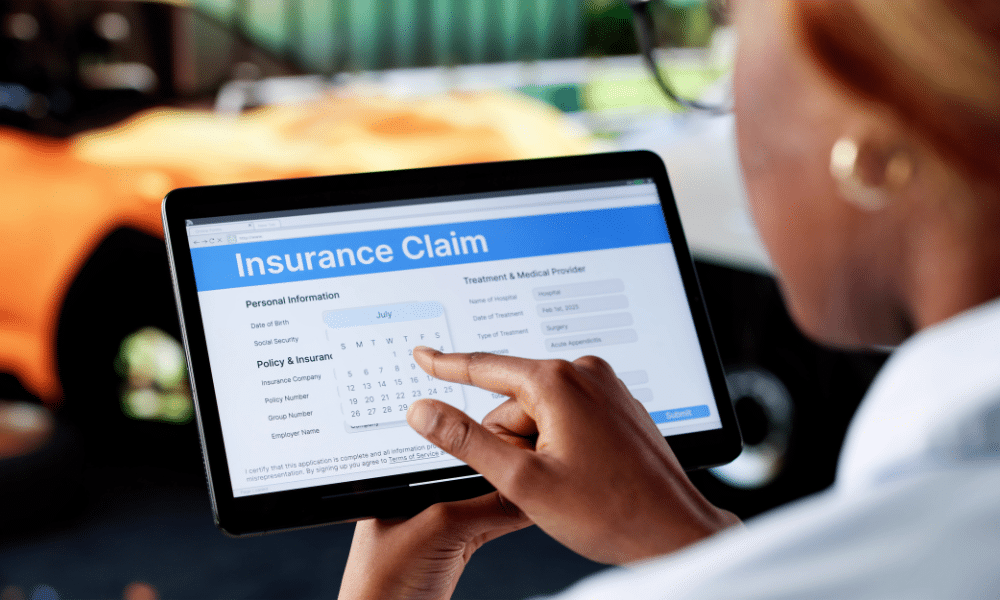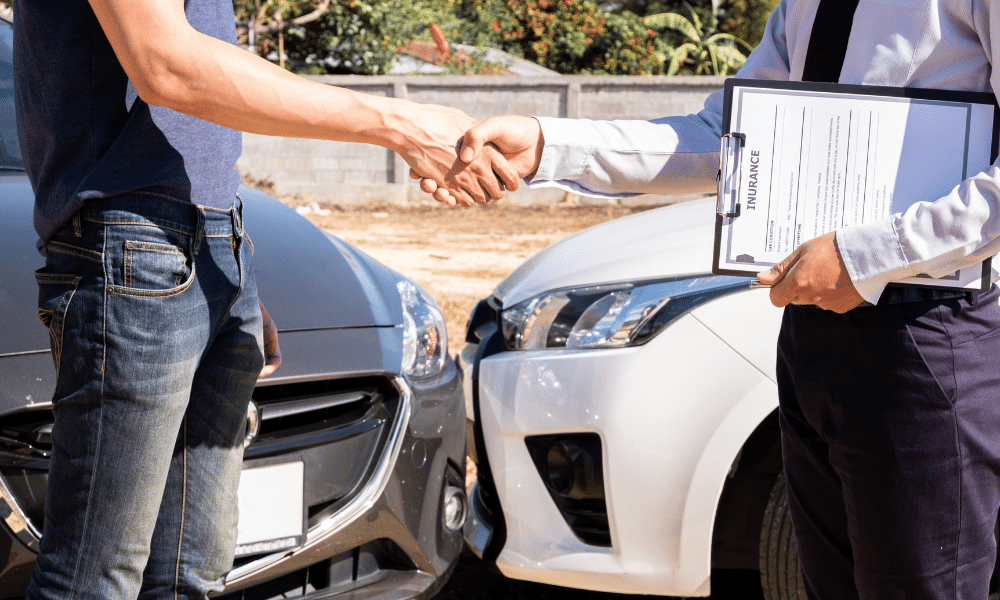In Kansas, after a car accident, you may be entitled to a variety of damages, including both economic losses (medical expenses, lost income, etc.) and non-economic losses (pain and suffering).
Once an accident claim is filed with your insurance company or a third-party provider, there is no guarantee that it will be approved. In fact, many claims are turned down by providers, even in cases where the right to compensation seems obvious, adding to the stress of an already difficult situation.
If you’re in this unfortunate position, with a denied claim, what can you do? Is the decision final? What avenues are open to appeal the denial of the claim?
Let’s take a look.
Note the reason given for the denial
Why was your car accident insurance claim denied? Understanding this is the first step to doing something about it. Laws in Kansas require insurance companies to provide a valid reason in writing for denying a claim.
The most common reasons for claim denials in Topeka are:
- Insufficient evidence provided: the lack of medical records, a police report, etc., is one of the most common reasons for denying a claim.
- Policy exclusions: if the damage or losses fall under a category excluded by your policy, the claim may be denied.
- Dispute over liability: for a claim to be successful, liability must be proven, which can be challenging without the right evidence and legal help (the insurer often claims no liability or shared liability).
- Failure to report the accident on time: claims must usually be reported within a specific timeframe.
- Lapsed policy coverage: if the policy has expired or is inactive at the time of the accident, the claim can be denied.
- Pre-existing health conditions: a pre-existing condition may lead to the denial of all or part of a claim.
- Fraud or misrepresentation: in some cases, the insurance company may accuse the claimant of misrepresenting the facts, leading to a claim denial.
Understand your insurance policy (including the fine print)
Your insurance policy should clearly state what you can and cannot claim for, the terms and conditions, and the steps for filing a claim. However, such policies are often written in “legalese,” making the key points difficult to unravel. Failure to read the small print can also lead to wrong expectations.
Check the policy for exclusions, coverage limits, and the claims process to see if the denial is justified, a mistake has been made or the denial is in “bad faith.” If in doubt, seek legal assistance from a qualified car accident lawyer.
What is a “bad faith” insurance claim denial?
A “bad faith” insurance claim denial is when the provider fails to uphold its contractual obligations or employs unfair or deceptive practices when processing a claim.
Despite the obligation of insurance companies to treat customers fairly, the drive to increase profits by loss adjusters can lead to deceptive claims strategies and denials, despite sufficient evidence and policy coverage.
“Bad faith” practices can result in:
- An unjustified claim denial (e.g., lack of objectivity, no valid reason for denial, no thorough investigation into the claim or a biased investigation).
- Undervalued claims, with unreasonably low settlements that do not cover the extent of the losses.
- Unreasonable payout delays, with delaying tactics used to try to get the claimant to agree to a lower settlement (claims should be handled promptly to avoid distress for policyholders).
- Failure to communicate or misleading communications about the client’s rights or coverage, which can cause unreasonable stress for the claimant.
If further evidence is needed, start gathering it
If a claim has been denied due to a lack of evidence or a dispute over liability, you may need more information to strengthen your case. The following evidence may be required after a car accident in Kansas:
- Medical records and bills documenting treatment and follow-up.
- A police report that accurately describes the accident details.
- Witness statements that corroborate your account of the accident.
- Photographs and videos showing the accident scene, vehicle damage, injuries, etc.
If you don’t know where to start with gathering evidence, speak to a car accident lawyer, who can assist you.
File an appeal to your car accident claim
Initial decisions over insurance claims are not final. An internal review or appeal process with the insurer may be available for denied claims—or you may be able to request an external review by a third party.
Your insurance provider will provide information on initiating this process on request. If your claim was denied due to a lack of evidence or a dispute over liability, provide the extra evidence you gathered and an explanation of why you believe the denial was unjustified. This could be enough to overturn the claim denial.
File a complaint with the Kansas Department of Insurance
If you believe your insurance provider is acting in bad faith or violating state regulations, you can file a complaint with the Kansas Department of Insurance (KDOI), the primary state regulator for auto insurance disputes.
You can make a complaint online or by phone, mail, fax, or email. Include your contact information, insurer’s name, and policy number, along with a description of the claim and a copy of the denial letter. You can also provide documentation to support your complaint.
The KDOI will likely require proof that you have already attempted internal resolution with the insurer before the issue is escalated.
If the KDOI finds violations of insurance law or policy, corrective action or further investigation by the insurance provider may be ordered. Otherwise, the case will be closed and you will be sent an explanation of why no further action can be taken.
Can you file a bad-faith lawsuit in Kansas?
Kansas permits claimants to sue insurers for unreasonable denial or delay of claims. For lower amounts, the small claims court can also receive complaints.
Lawsuits are usually more effective if you hire legal representation, and few would attempt this step alone.
Why seek legal assistance?
A qualified car accident lawyer can take up your case and provide a better chance of a favorable outcome by:
- Evaluating your case and assessing the validity of your claim and the reasons for denial.
- Negotiating with the insurer to secure a fairer solution.
- Filing a lawsuit against the provider to secure the compensation you deserve.
It’s best to hire a personal injury lawyer as soon as possible after a car accident and before you file the original claim. If not, an attorney may be able to take your case to fight the claim denial.
How to avoid claim denial after a car accident
You can take the following steps to strengthen your case and prevent a claim denial after a car accident in Kansas:
- Consult an attorney as soon as possible if you intend to claim.
- Gather as much evidence as possible to help your attorney prove liability.
- Maintain a record of communications with the insurance company (if you hire an attorney, this will be done for you).
- Provide honest and consistent information to your attorney and the insurance company.
- Respond promptly to documentation or information requests.
If you’re in the Topeka area, speak to a car accident lawyer at Irigonegaray & Revenaugh, during a free case evaluation. We will advise you of your legal options and assess how best to claim the compensation you deserve.
Car Accident Articles
Should I Seek Medical Attention After a Car Accident Even If I Feel Fine?
If you feel fine after a car accident, you’re [...]
How An Attorney Can Help With Your Kansas Car Accident Claim
In the aftermath of a car accident in Kansas, [...]



